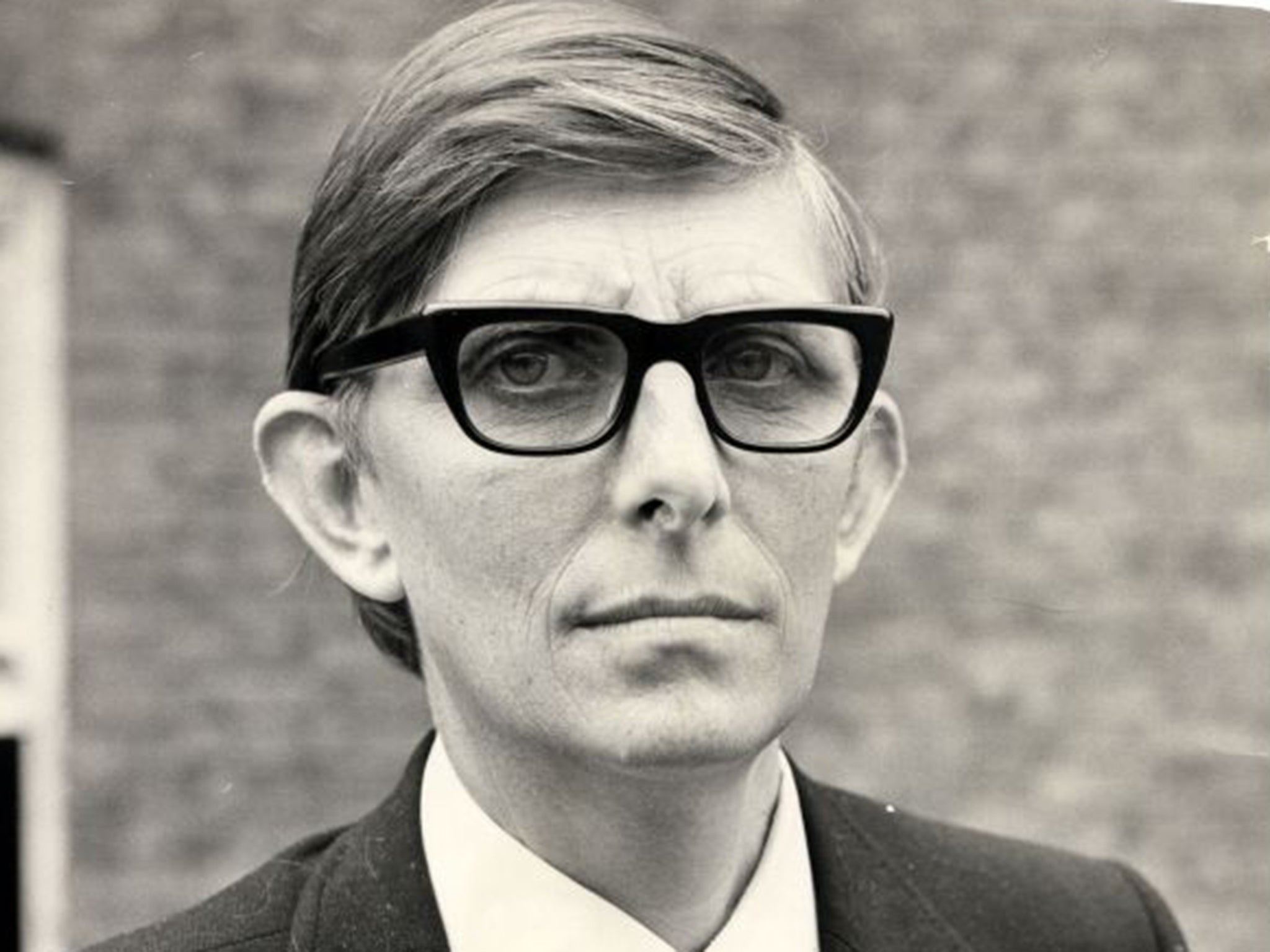Gerald Williams: Journalist and broadcaster whose knowledge and wit made for an engaging Wimbledon double act with Des Lynam

For a decade in the 1970s and ’80s Gerald Williams was the BBC’s voice of Wimbledon tennis commentary, bringing to the top event in the tennis calendar his in-depth knowledge of the sport, playful banter and a sense of fun that was a joy to watch.
Williams was born in Croydon in 1929. When his parents divorced he found himself dividing his time between his native town and Llangynog, Carmarthenshire. He left Carmarthen Grammar School with what he described as a “vague idea that I would try to be a journalist” and found an unpaid trial position at the Croydon Advertiser.
During the second week of his month-long internship, the editor asked him what his plans were. When Williams proposed the idea of going to university, the editor pointed out of the window and replied, “the university you want is out there in that street”. He never forgot that advice.
As a reporter for the Croydon Advertiser he covered the Munich air crash of February 1958 in which eight of the Manchester United “Busby Babes” died. The crash had not only killed United players but also an equal number of journalists, who had followed the team to Germany, among them Eric Thompson of the Daily Mail. On the recommendation of the boxing commentator Harry Carpenter, Williams joined the Mail as its Manchester football correspondent. “It was a strange feeling for a young man from London to be sitting in the press box at Old Trafford with the new Busby Babes,” Williams recalled. “Half the football team had been wiped out but there was almost a spirituality about it.”
His tennis debut on radio came during the football close season, when he was asked by the former Wales rugby international and sports broadcasting great, Cliff Morgan, to provide commentary for Radio 2. His colleague Des Lynam had been on the channel since the late 1960s and had made the transition to television in 1978. Williams followed him a year later.
During Williams’ earlier career as a newspaper journalist he had especially admired the commentary of the former tennis professional Dan Maskell (Independent obituary, 11 December 1992) who had gone on to become “the voice of tennis” on the BBC. Williams told an interviewer, “I can remember listening to the commentary of Dan Maskell and Jack Kramer. It never occurred to me that one day I would be sitting in a commentary box with Dan on the centre court at Wimbledon. Dan was sitting there giving his commentary and I thought, ‘You’ve made it here, mate’.” The man who Williams had for so long looked up to soon became his best friend.
For a decade from the late 1970s, Williams and Lynam were a must-watch during Wimbledon, their pairing on the evening round-ups working as well for them as it did for the viewers, though, Williams remembered, “The Beeb bosses were very suspicious at first. Then the chairman of Wimbledon told someone high up at the Corporation that he really enjoyed it. Suddenly we were considered this huge hit.”
Des Lynam told The Independent: “He was great fun and he knew tennis inside out. He loved the game and knew most people in it. Even though he was a different generation to most of the players, you’d still find him talking to the most unlikely people and relating to them. We were both somewhat irreverent about the programme,” Lynam confessed with a smile in his voice. “Although we were concerned not to take the piss out of the tennis, we certainly did out of each other.”
On one occasion Lynam left Williams up on a hoist at the end of a broadcast. He remembered Williams’ plaintive call of, “Can I come down now?” – to which Lynam simply replied “Goodnight everybody...”
But the tennis of that era wasn’t always light-hearted. Williams had followed the rise of John McEnroe and disapproved of his behaviour. Although Williams later admired him, following his transformation into a commentator, he recalled, “I thought he and Jimmy Connors were bringing disgrace to the game. The whole thing was disgraceful, and I used to say so, and McEnroe and I found it very difficult to have anything to do with each other.”
Williams retained his journalist instinct and was an incisive interviewer. In a memorable 1985 television encounter with Juan Antonio Samaranch, then President of the IOC, he got the clear statement that many had wanted to hear for so long: “Our aim is to see the best players in the Olympic tournament.” And indeed tennis did return to the summer Olympics in 1988, after a 64-year hiatus.
Williams had latterly lived at Llangynog, near Carmarthen, where he died. The presenter and former French Open champion Sue Barker said, “I always admired his style and humour and was thrilled when he asked me to be his co-commentator. He was always so helpful and encouraging and I knew I was learning from the very best.”
MARCUS WILLIAMSON
Gerald Williams, journalist and sports commentator: born Croydon, Surrey 24 June 1929; died Llangynog, Carmarthenshire 21 January 2016.
Join our commenting forum
Join thought-provoking conversations, follow other Independent readers and see their replies
Comments
Bookmark popover
Removed from bookmarks